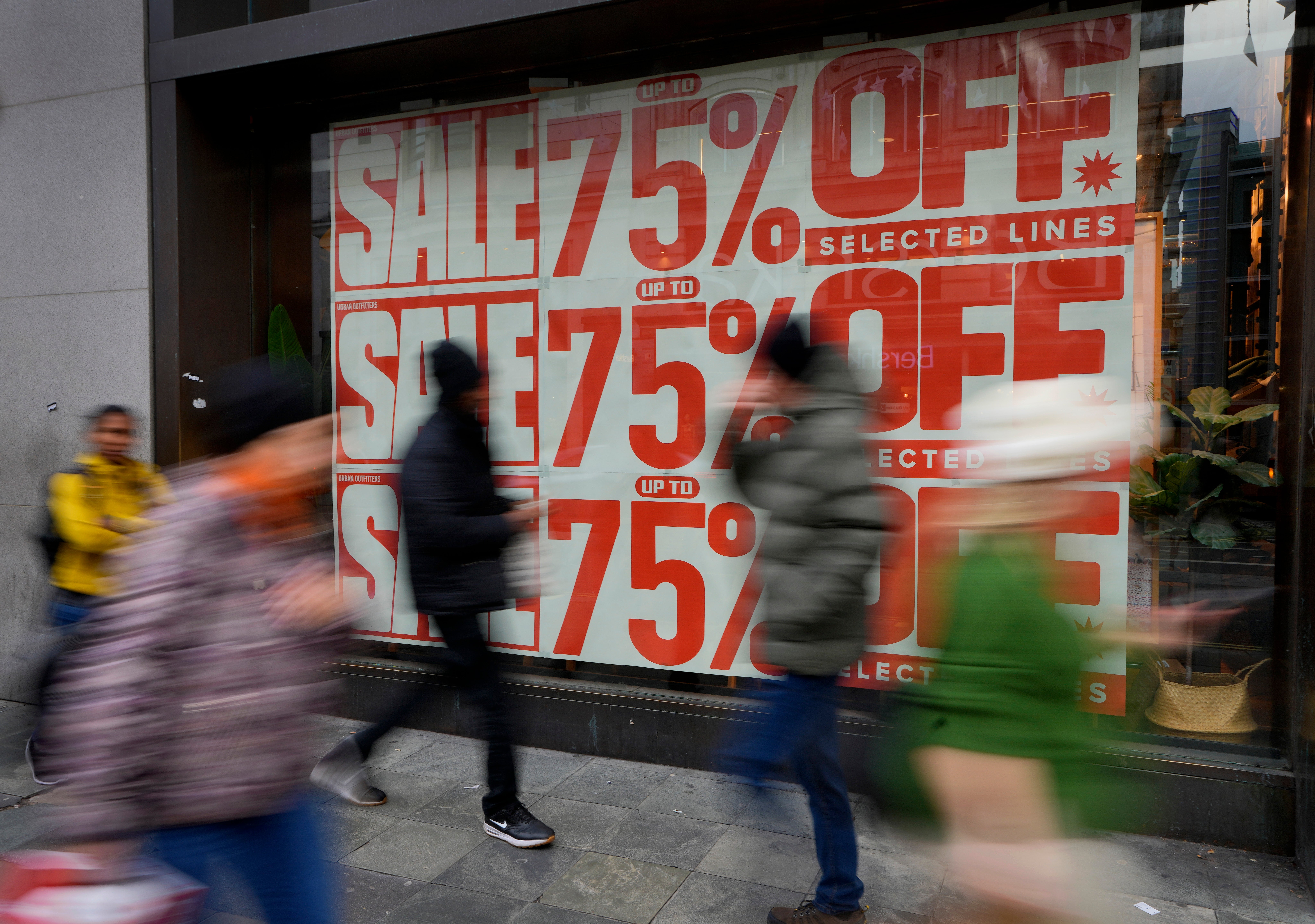Why the hard work on inflation is still to come
We’re still permanently poorer after the cost of living squeeze, 2024 will be a tough year for the economy says Sean O’Grady

Shoppers on Oxford Street in London as Wednesday’s inflation figures were announced
A bigger-than-expected fall in the rate of inflation is an unexpected Christmas gift for Rishi Sunak and his government, as well as for consumers and businesses. Consumer Prices Index inflation fell to 3.9 per cent in November, down from 4.6 per cent in October, and the lowest level since September 2021.
The cost of bread, petrol and of second-hand cars helped drive the rate lower, as well as a recent slowing in wage growth that pushed “core” inflation down to 5.2 per cent. Over this year, much of the fall has been due to statistical base effects – the absence of the sharp rises in food and energy prices we suffered in 2022. Moreover, inflation remains some way above the Bank of England’s official target rate of 2 per cent; and annual food inflation is still almost 10 per cent; on the other hand, energy bills are reportedly predicted to ease a little next summer.
Does this mean prices are coming down?
Subscribe to Independent Premium to bookmark this article
Want to bookmark your favourite articles and stories to read or reference later? Start your Independent Premium subscription today.
Join our commenting forum
Join thought-provoking conversations, follow other Independent readers and see their replies